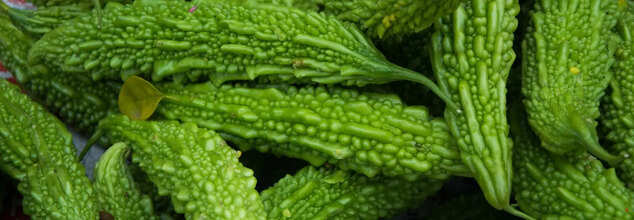
Credits: Canva
Here's The Truth About Top 9 Weight Loss Diets
There are many kinds of diets out there, and many claim to be great for weight loss. These diets focus on reducing your appetite, while others restrict calories, carbs or fats. So, let's get on to what these diets are and what is the science behind them.
The Paleo Diet
The paleo diet claims that you should eat the same food that your ancestors ate when they were hunters and gatherers. The word "paleo" comes from the Paleolithic era, when there were in fact, hunters and gatherers. The theory is that most modern diseases are linked with Western diet and it happens because of the consumption of processed foods, dairy and grains. While it is debatable if you can actually eat the food our ancestors ate, the diet does emphasizes on whole foods. It focuses on lean protein, vegetables, fruits, nuts, and seeds, while discourages processed foods, sugar, diary, and grains.
In terms of weight loss, a 2007 study, A Palaeolithic diet improves glucose tolerance more than a Mediterranean-like diet in individuals with ischaemic heart disease, has shown that the paleo diet can actually lead to significant weight loss and reduced waist size.
The Vegan Diet
Like the name suggests, the vegan diet is all things vegetarian and taking nothing from animals. So the dairy, the milk, the cheese, the honey, none of that is allowed. This is often known as the strictest form of vegetarianism. It seems to be very effective for weight loss, as the food is very low fat and high fiber. It makes you feel full for longer.
As per a 2014 study, Low glycemic index vegan or low-calorie weight loss diets for women with polycystic ovary syndrome: a randomized controlled feasibility study, and many more such studies, vegan diets are linked to lower body weight and body mass index (BMI).
Another 2013 study, titled: A multicenter randomized controlled trial of a plant-based nutrition program to reduce body weight and cardiovascular risk in the corporate setting: the GEICO study, which went on for 18 weeks showed that people on a vegan diet lost 9.3 pounds more than those on a control diet.
Low-Carb Diets
These diets have been popular for decades and it involves limiting carb intake to 20 to 150 grams per day. The main aim of this diet is to force your body to use more fats for fuel than to using carbs as a main source of energy.
Studies have indicated that low-carb diets are extremely helpful for weight loss, especially in overweight and obese people. As per a 2014 study, titled: A lower-carbohydrate, higher-fat diet reduces abdominal and intermuscular fat and increases insulin sensitivity in adults at risk of type 2 diabetes, these diets were effective at reducing dangerous belly fat, which can become lodged around your organs.
People on very low-carb diets reach a state called ketosis, which leads to more than twice the weight loss than low-fat, calorie-restricted diet.
The Dukan Diet
It is a high-protein, low carb weight loss diet, which is split into four phases. The phases has two weight loss periods and two maintenance phases.
In a 2015 study, titled: Assessment of food intakes for women adopting the high protein Dukan diet, women who followed the Dukan diet ate around 1,000 calories and 100 grams of protein per day and lost an average of 33 pounds in 8 to 10 weeks.
Ultra Low-Fat Diet
This diet restricts your consumption of fat to under 10% of daily calories. A generic low fat diet provides around 30% of its calories for fat, whereas in an ultra low-fat diet, it lowers down to 10% of total calories.
The diet has been proven very successful for weight loss journey. In fact, an old study from 1975, titled: Treatment of massive obesity with rice/reduction diet program. An analysis of 106 patients with at least a 45-kg weight loss, found that obese people lost around 140 pounds on an ultra-low-fat diet. While another 8-week long study, titled: Culturally-sensitive weight loss program produces significant reduction in weight, blood pressure, and cholesterol in eight weeks, found that a diet that contained 7-14% of fat showed an average weight loss of 14.8 pounds.
The Atkins Diet
This is the most well-known low-carb weight loss diet and it helps you lose weight by eating as much protein and fat as you like, as long as your avoid carbs. It is also split in four phases, namely: induction phase where you eat under 20grams of carbs, then phases where you reintroduce healthy carbs back into your life.
Studies show that this diet is a faster way to lose weight.
The HCG Diet
This is an extreme diet that is meant to cause very fast weight loss. It makes you lose 1 to 2 pounds per day. It also boosts your metabolism. It targets the HCG or the human chorionic gonadotropin hormone, which is present in high levels during pregnancy.
The diet is split into three phases. During the first phase, you begin taking HCG supplements.
During the second phase, you follow an ultra-low-calorie diet of only 500 calories per day, along with HCG supplement drops, pellets, injections, or sprays. The weight loss phase is prescribed for 3–6 weeks at a time.
In the third phase, you stop taking HCG and slowly increase your food intake.
While studies have shown that it causes weight loss, research found that more than HCG, the diet has to do a lot more with ultra-low-calorie diet.
The Zone Diet
It is a low-glycemic load diet that limits your carbs to 35 to 45%. The GI of a food is an estimate of how much it raises your blood glucose levels after consumption. It also helps reduce the risk of developing any chronic diseases. However, studies show that this diet is rather inconsistent.
Intermittent Fasting
This is one of the most popular words in the weight loss industry. It cycles your body between periods of fasting and eating. Instead of restricting the foods you eat, it controls when you eat it.
There are several ways to follow intermittent fasting:
The 16/8 Method: Skip breakfast and eat only within an 8-hour window, fasting for the remaining 16 hours.
The Eat-Stop-Eat Method: Fast for 24 hours once or twice a week on non-consecutive days.
The 5:2 Diet: Eat 500–600 calories on two non-consecutive days, with no restrictions on the other five days.
The Warrior Diet: Consume small portions of raw fruits and vegetables during the day, followed by one large meal at night.
In terms of weight loss, a 2015 study, titled: Fasting for weight loss: an effective strategy or latest dieting trend? intermittent fasting is very successful for weight loss. It has been shown to cause weight loss of 3 to 8% over a period of 3 to 24 weeks. It is a lot compared to most weight loss diets.

Credit: Canva
Can Bitter Gourd Help People Manage Diabetes Better?
Karela, or bitter gourd, is undoubtedly one of the most hated vegetables in the world. Called momordica charantia by the scientific community, this vegetable is infamous for its bitter taste and is used in Asian, African and Carribean cuisines. Lesser known is the fact that for centuries, it has been cherished in traditional medicine due to its powerful effects on the body. Interestingly, this vegetable traces its origin to India.
While its health benefits are known across the world, there is empirical evidence to testify that drinking its juice every day can help people control diabetes. Bitter Gourd contains compounds such as charantin and polypeptide-p that mimic insulin activity. These properties can contribute to improved blood sugar regulation. The vibrant green veggie is also rich in antioxidants, which help combat free radicals and may reduce oxidative stress.
A study published in the International Journal of Molecular Science in February 2023 suggests that it contains bioactive compounds with hypoglycemic properties that help regulate blood sugar levels in individuals with type 2 diabetes. These compounds may work through multiple mechanisms, such as improving insulin sensitivity and reducing glucose absorption.
There are other studies to support the same. However, these studies on the effects of bitter gourd have limitations, including small sample sizes and inconsistent methodologies. More rigorous clinical trials are needed to confirm its effectiveness and safety. Despite this, bitter gourd remains a promising natural and cost-effective.
However, many studies on the effects of bitter gourd have limitations, including small sample sizes and inconsistent methodologies. More rigorous clinical trials are needed to confirm its effectiveness and safety.
What Are Other Benefits Of Bitter Gourd?
One of the most well-known benefits of bitter gourd is that it is rich in dietary fibre, which aids digestion and slows the absorption of sugar in the bloodstream. This helps to prevent spikes in glucose levels after meals. Bitter gourd is also rich in antioxidants like vitamin C, which help combat oxidative stress and reduce inflammation in the body. This can be particularly beneficial in preventing chronic diseases such as heart disease and certain types of cancer. Additionally, the vegetable's high fibre content aids in digestion, promoting regular bowel movements and helping to cleanse the digestive tract. It can also help with weight management by providing a feeling of fullness and reducing overall calorie intake.
The bitter compounds in bitter gourd, particularly momordicin, have also been shown to support liver health by enhancing the production of bile, which is essential for digesting fats. This detoxifying effect can improve liver function and overall metabolic health. Moreover, bitter gourd has been found to have antimicrobial properties, which can help fight off infections. It also boosts the immune system, making the body more resilient against illness.

Credits: Canva
Why Limiting Sugar In The First 1,000 Days Of A Child Matters For Lifelong Health
From fruit snacks to juice boxes, sugary foods are deeply ingrained in modern childhood. We cannot think of our childhood without sweets, desserts and candies. This is also when many parents unknowingly introduce their children to excessive sugar early on. They do not realize the long-term health implications it bears. However, thanks to the emerging research, it has now brought into light that the first 1,000 days of life, starting from conception, are crucial in shaping a child's health, including their risk for chronic diseases like diabetes and hypertension.
What Is The Link Between Early Sugar Intake And Chronic Disease
Last year, in journal Science was published that analyzed historical data from World War II-era Britain. This was when sugar was rationed. It was led by economist Tadeja Gracner, the research found that individuals who experienced early-life sugar restrictions had significantly lower rates of Type 2 diabetes and hypertension later in life.
Using the data from UK Biobank, researchers have examined the health records of over 60,000 individuals born between 1951 and 1956. The findings revealed:
- A 35% lower risk of Type 2 diabetes and a delay in disease onset by four years.
- A 20% lower risk of hypertension and a delay in disease onset by two years.
Higher sugar consumption post-rationing was linked to increased inflammation, poor metabolic health, and a greater likelihood of conditions like high cholesterol and arthritis.
Why Is Early Nutrition Important For Health?
A pediatric obesity specialist at Cincinnati Children’s Hospital, Robert Seigel emphasized that nutrition in the womb and early childhood plays a defining role in long term health. “You are not only what you eat, you are what your mom eats,” he explains. Early exposure to high sugar levels can influence taste preference, it makes children more likely to crave and consume sugary foods throughout life.
Gracner's research also supports this and suggests that individuals who consumed less sugar in early childhood may develop a reduced preference for sweetness. It could potentially lower their lifelong sugar intake.
What Is The Impact Of Sugar?
As per the American Academy of Pediatrics (AAP) and Mayo Clinic has highlighted the importance of avoiding added sugars, which are also commonly found in processed foods such as pasta sauces, crackers, and packaged drinks. Unlike naturally occurring sugars in fruits and dairy, added sugars like high fructose corn syrup, sucrose and glucose are also linked to weight gain, metabolic issues and disorders, and insulin resistance.
The AAP also notes that sugar constitutes around 17% of children's daily diets, which means sugar drink accounts for half of that intake. In order to promote better health among children, AAP recommended:
- No added sugar for children under 2 years.
- Less than 25 grams (about 6 teaspoons) of added sugar per day for children over 2.
Following the National Dietary Guidelines, which advise keeping added sugar intake below 10% of total daily calories at any age.
There is also a "95210" guideline that is developed by Dr Alicia Hartung, also recommended by Pediatric Seven Abelowitz that provides practical steps for parents:
- 9 hours of sleep per night
- 5 servings of fruits and vegetables daily
- 2 hours or less of screen time
- 1 hour of physical activity
- 0 sugary drinks

Credit: Canva
Does Eating Sea Moss Boost Your Immunity?
Sea moss (Chondrus crispus), commonly known as Irish moss, is a type of red algae that grows along the Atlantic coasts of Europe and North America. It has gained popularity for its potential health benefits, particularly for immune support, thyroid function, gut health, and heart health. Available in gel, powder, and supplement forms, sea moss is rich in essential nutrients like iodine, making it a valued addition to many diets. However, while it offers numerous benefits, it also comes with certain risks.
Potential Health Benefits of Sea Moss
Boosts Immune Function
Sea moss is packed with vitamins and minerals, including vitamins C and D, which support immune health. Some studies suggest that its anti-inflammatory and antimicrobial properties may help the body fight infections, though further research is needed to confirm its effectiveness.
Supports Thyroid Health
The thyroid gland plays a crucial role in regulating metabolism, and sea moss provides iodine, a key mineral required for the production of thyroid hormones. Adequate iodine intake can help maintain thyroid function and prevent conditions like hypothyroidism.
Promotes Gut Health
As a source of prebiotics, sea moss can nourish beneficial gut bacteria, aiding digestion and overall gut health. Prebiotics support a balanced microbiome, which is essential for metabolic processes and immune function.
Enhances Libido
Sea moss contains zinc, a mineral known for its role in hormone production and sexual health. Additionally, its iodine content helps regulate thyroid function, which can influence libido and energy levels.
May Help Prevent Parkinson’s Disease
Some preliminary research suggests that sea moss contains compounds that may protect brain cells. An animal study indicated that sea moss extracts helped improve dopamine-producing cell function in worms, potentially offering insights into neurodegenerative disease prevention. However, human studies are necessary to validate these findings.
Provides Essential Nutrients
Sea moss is a rich source of various vitamins and minerals, including calcium, iron, magnesium, phosphorus, potassium, selenium, and vitamins A, C, D, E, and K. While some claims suggest it contains 92 essential nutrients, more research is needed to confirm its exact nutritional composition and bioavailability.
Supports Heart Health
Sea moss is high in soluble fiber, which aids digestion, promotes satiety, and helps regulate cholesterol levels. By reducing LDL (“bad”) cholesterol, it may lower the risk of heart disease. Additionally, its antioxidant properties help combat oxidative stress, which contributes to cardiovascular issues.
Nutritional Profile
Two teaspoons of sea moss provide:
Calories: 4.9
Carbohydrates: 1.2 g
Fiber: 0.1 g
Protein: 0.2 g
Sodium: 6.7 mg
Fat: 0.02 g
Potential Risks of Sea Moss Consumption
Heavy Metal Contamination
Sea moss may absorb heavy metals like arsenic and mercury if harvested from polluted waters. While levels are generally low, regular consumption from unregulated sources could pose health risks.
Excessive Iodine Intake
Consuming too much sea moss can lead to excessive iodine intake, disrupting thyroid function. Both iodine deficiency and excess can cause thyroid disorders, including hyperthyroidism and hypothyroidism. Consulting a healthcare provider can help determine safe consumption levels.
How to Incorporate Sea Moss into Your Diet
Blend sea moss powder into smoothies, teas, or juices.
Add it to soups, stews, or baked goods.
Sprinkle dried sea moss over yogurt or oatmeal.
Sea moss is a nutrient-dense superfood with potential health benefits for immunity, thyroid health, gut function, and heart health. However, due to its iodine content and potential contamination risks, it should be consumed in moderation. Before adding sea moss supplements to your diet, consult a healthcare professional to ensure safe and effective usage.
© 2024 Bennett, Coleman & Company Limited

